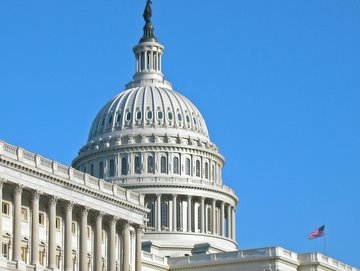| Home | About | Archives | RSS Feed |

@theMarket: Bumps in the Road
 Investors are worried. They are worried that the end of QE II will spell disaster. They are worried that European bank woes will spill over onto our shores. They are worried that the economy is stalling and inflation is trending higher. Yet, with all these worries, the markets have held their own over the last few weeks.
Investors are worried. They are worried that the end of QE II will spell disaster. They are worried that European bank woes will spill over onto our shores. They are worried that the economy is stalling and inflation is trending higher. Yet, with all these worries, the markets have held their own over the last few weeks.
I'm not going to dismiss these concerns, although we need to remember that markets often climb a wall of worry. Admittedly, there have been so many downgrades of sovereign debt lately that it's hard to keep track. The PIGS (Portugal, Ireland, Greece, and Spain) have had to make room this week for Japan. That island nation joined the ranks of downgrades in large part due to the economic impacts of the recent earthquake and tsunami.
The governments of the PIGS countries, in the meantime, have responded by implementing austerity measures, hiking taxes and selling off state assets.
These belt-tightening policies have not had the desirable effect either in the economic or in the sociopolitical arena. Anger and fear among the population have spawned demonstrations, strikes and political upheaval.
"Just say no," has been the message of various opposition parties within the region.
The voters are listening. Spain's Socialist Party, for example, was hammered in recent elections. Ireland kicked out its prime minister, Greece's opposition parties are making it impossible for the government to make deeper austerity cuts and demonstrations have replaced dancing as a national pastime.
Although "no" sounds good, especially to the youth, it unfortunately provides little in the way of solutions to the PIGS financial crisis. But regime change (or the threat of one) has made ruling parties drag their heels in implementing reform. In the meantime, the debt continues to pile up and the financially sound countries within the EU are becoming increasingly impatient.
Readers may recall that I expressed serious doubts over a year ago when the EU first announced that in exchange for a bailout, the PIGS would need to agree to stringent spending cuts and higher taxes. My hesitation stems from a similar debt crisis I experienced in Latin America during the 1980s.
At that time, it was the International Monetary Fund (IMF) that was calling the shots. The same deal was foisted on countries throughout Latin America. All that effort accomplished was massive unemployment, a rapid decline in economic activity and a whole bunch of socialist revolutions from one end of the continent to the other. We called that period the "Lost Decade."
In the end, when the problem threatened to topple some of our own banks, we did what had to be done. We swapped debt for equity at 10 cents on the dollar. We also forgave a lot more debt than we swapped and, as a result, we have the Latin America we have today—dynamic, entrepreneurial and growing far faster than most regions. God forbid, that today's brilliant economists and politicians learn a lesson from the Lost Decade!
As for the rest of these worries, I'll handle them in order: the end of QE II at the end of June will be a nonevent. The Fed has our back and will continue to have it. Europe's woes will be contained, most likely by allowing some countries to re-negotiate their debt along the lines I have suggested. The "DD" (double dip) won’t happen this year and inflation expectations will begin to decline as investors realize the peak in the commodity bubble has come and gone.
So that leaves a market that is down less than 5 percent from its highs. Recall that I expected a pullback into the 1,300 to 1,325 range on the S&P 500 Index. Well, we dropped to 1,311 this week and in my opinion we are scraping along the bottom. So quit worrying.
Bill Schmick is an independent investor with Berkshire Money Management. (See "About" for more information.) None of the information presented in any of these articles is intended to be and should not be construed as an endorsement of BMM or a solicitation to become a client of BMM. The reader should not assume that any strategies, or specific investments discussed are employed, bought, sold or held by BMM. Direct your inquiries to Bill at (toll free) or e-mail him at wschmick@fairpoint.net. Visit www.afewdollarsmore.com for more of Bill's insights.
| Tags: QEII, debt, Europe |
The Independent Investor: Gordon Gekko Should Run for Congress
 Did you know that congressmen and senators consistently outperform the stock market year after year? On average, the lower house members beat the market by about 6 percent a year while those of the higher chamber wrack up a 10 percent level of outperformance annually. Now, if you believe that's purely coincidental, well, I have a bridge I can sell you cheap.
Did you know that congressmen and senators consistently outperform the stock market year after year? On average, the lower house members beat the market by about 6 percent a year while those of the higher chamber wrack up a 10 percent level of outperformance annually. Now, if you believe that's purely coincidental, well, I have a bridge I can sell you cheap.
Don't take my word for it. Four university researchers from four different schools poured over 16,000 stock buys and sells of 300 congressmen over a 16-year period and found "significant positive abnormal returns." Five years ago, the same team uncovered even better results when investigating the personal stock transactions of Senators.
As a full-time portfolio manager myself, I know managing money is a 24/7 job that requires an enormous amount of research, experience and time. How can our politicians manage to pull out these startling returns year after year, while serving in Washington, running election campaigns and travelling back home to their constituents?
The university report speculates (without forming a conclusion) that the out performance may have something to do with the ability of members of both houses to trade on non-public information or worse, vote their own pocketbooks.
But wait, how can that be? Isn't trading on insider information illegal?
Well, it turns out that our lawmakers are excluded from the same insider trading rules that have nailed so many Wall Street traders, most recently in The Galleon Insider Trading Case.
Just think how much potential for abnormal profits resides in knowing what bills and appropriations will pass and those that won't. If, for example, a huge contract is awarded to one of our defense companies in a non-public appropriations bill, a member of either house could legally buy the stock ahead of time and even tip off friends, family and possibly their largest campaign contributors.
It may also explain how certain big financial institutions, over the last few years, seem to know exactly how bad or good the country's economic data will be prior to public release. That data has been capable of moving markets substantially either up or down over short periods of time.
Given the U.S. government’s massive intervention in the financial system since 2008, the ability to make piles of money from government actions is immense. Is it any wonder that politicians have adroitly avoided changing the rules that govern their own actions, until now?
A bill introduced by Reps. Louise Slaughter, D-N.Y., and Tim Walz, D-Minn., called the STOCK (Stop Trading on Congressional Knowledge) act was reintroduced in March of this year. It was first introduced in 2006 and predictably went nowhere. The act would "prohibit Members of Congress and federal employees from profiting from nonpublic information they obtain via their official positions, and require greater oversight of the growing 'political intelligence' industry."
"As it stands today, neither members of Congress nor their staff can be held legally accountable for making personal investment decisions based on non-public information," explains Congresswomen Slaughter, "Even more troubling is that unregistered firms might be using Congressional non-public information to make financial transactions at the expense of the average investor. The bill places those individuals under insider trading rules and enhanced disclosure rules."
The act would prevent government employees from disclosing non-public information to anyone if they believe it will be used to buy or sell stocks, bonds or commodities futures. It would also require members of Congress and employees to report the purchase, sale or exchange of securities in excess of $1,000 within 30 days.
"This is a matter of equality under the law," said Congressman Walz, "The same standards we have established for Wall Street should apply to Congress. The potential for abuse is obvious and troubling and there is simply no good reason Congress should get to play by a separate set of rules in the stock market."
Readers may agree that there is something hypocritical about politicians and regulators probing hedge funds for suspicious trading while the very same government officials are able to trade on nonpublic information on current and upcoming congressional activity and give it to their friends as well as hedge funds if they choose.
While I applaud the efforts of Walz and Slaughter, I suspect the chances of STOCK's passage is about as remote as my growing hair again.
Bill Schmick is an independent investor with Berkshire Money Management. (See "About" for more information.) None of the information presented in any of these articles is intended to be and should not be construed as an endorsement of BMM or a solicitation to become a client of BMM. The reader should not assume that any strategies, or specific investments discussed are employed, bought, sold or held by BMM. Direct your inquiries to Bill at (toll free) or e-mail him at wschmick@fairpoint.net. Visit www.afewdollarsmore.com for more of Bill's insights.
| Tags: Congress, SEC, trading |
@theMarket: Markets Tread Water
 Volume was thin, volatility high, and despite all the excitement over the LinkedIn IPO, the averages finished little changed from the levels of last week. This is a market that requires patience and fortitude.
Volume was thin, volatility high, and despite all the excitement over the LinkedIn IPO, the averages finished little changed from the levels of last week. This is a market that requires patience and fortitude.
By now, you probably have had your fill of LinkedIn stories. For those who haven't caught up, all you need to know is that the professional networking company went public on Thursday at $45 a share and proceeded to more than double by the end of the day. It now has a valuation greater than one-third of the companies that make up the S&P 500 Index, making billionaires of its founder and many of its staff.
A few analysts expect LinkedIn's IPO to be just a taste of things to come. The big four in this space - Facebook, Groupon, Twitter and Zynga - haven't set a date for accessing the public markets but are all making noises that suggest future IPOs. Some hope that LinkedIn will revitalize the IPO market, which has been lackluster at best so far this year.
Other analysts fret that the overnight $9 billion market capitalization of LinkedIn is reminiscent of the companies that went public during the Dot-Com boom. And we all know how that turned out. I suspect that, like the stock market in general, the price action of LinkedIn simply reflects the fact that too much money is chasing too few investments led by the "hot money" folks who have abandoned commodities and are looking for the next big play.
At some point, rational behavior will prevail and LinkedIn will trade at a valuation that will better reflect its fundamentals. Until then, I will watch the show from the sidelines.
As for commodities, the prices of silver, gold, grains and base metals are trading like yo-yos in the hands of elephants. In the energy space, oil is fast closing in on $95 a barrel. Don't try to be a hero and trade these price movements. Leave that to the professionals, who, by the way, are losing as much as they're making in these markets. There will come a time when commodities finish falling. Usually, prices will tend to flatten out and volumes dry up at the bottom. That will be the time to look at these investments once again.
In the meantime, the dollar's strength is hurting U.S. stocks as is Euroland's continued difficulties with the PIGS economies. Friday it was the turn of the Greeks, whose sovereign debt rating was reduced further to "B-plus, highly speculative." It appears that default is inevitable for Greece, (something I predicted would happen over a year ago). The trick will be to engineer a default without actually labeling it as such, something bankers and politicians are quite adept at doing after the last few years.
As for the markets, they remain in up trends. The "sell in May and go away" crowd would have you abandon the markets until October. Although the May Play works some of the time, I don't believe this year will be one of them. Stick with the markets and have patience.
Any references to specific securities are for illustrative purposes only and were selected based on a non-performance based criteria. The performance of the securities listed is not discussed and Berkshire maintains a listing of all recommendations for the preceding year and makes it available to the SEC upon request. The securities identified and described do not represent all of the securities purchased, sold, or recommended for client accounts. The reader should not assume that an investment in the securities identified was or will be profitable.
Bill Schmick is an independent investor with Berkshire Money Management. (See "About" for more information.) None of the information presented in any of these articles is intended to be and should not be construed as an endorsement of BMM or a solicitation to become a client of BMM. The reader should not assume that any strategies, or specific investments discussed are employed, bought, sold or held by BMM. Direct your inquiries to Bill at (toll free) or e-mail him at wschmick@fairpoint.net. Visit www.afewdollarsmore.com for more of Bill's insights.
| Tags: IPO, dot-com |
The Independent Investor: Ole Man River Bolsters Agriculture Investment Case
 The flooding of the Mississippi River will be the worst disaster in the Delta farming region's history since1927. Millions of fertile acres in Missouri, Tennessee, Louisiana, Mississippi and Arkansas are under water. Farms along that riverbank could take a $2 billion hit, but to us it simply underscores our argument that agriculture is a long term growth area.
The flooding of the Mississippi River will be the worst disaster in the Delta farming region's history since1927. Millions of fertile acres in Missouri, Tennessee, Louisiana, Mississippi and Arkansas are under water. Farms along that riverbank could take a $2 billion hit, but to us it simply underscores our argument that agriculture is a long term growth area.
Understand that my heart goes out to those who are suffering from this misfortune. Cotton, wheat, corn, soybeans, rice and even catfish won't be raised or planted this season, forcing many Americans out of work. It also will add even more pressure to sky high agricultural prices. Readers may recall my January column "Stock up now or pay later," where I warned that higher prices for a wide range of soft commodities would be showing up in retail stores and supermarkets just about now. But the flip side of these disasters is they offer a fertile field of investment for those who pay attention.
Horrific weather conditions throughout the world are largely responsible for the present crop shortages. So far this year weather appears once again to have turned a cold shoulder to farmers whether in the Mississippi or the Yangtze River deltas. Even before the flood, the World Agricultural Supply and Demand estimates from the U.S. Department of Agriculture was forecasting large price increases for a variety of grains for the 2011-2012 periods.
The flooding just happened to occur as a free-fall in commodity prices began. Energy, base metals, precious metals and agricultural foodstuffs have all been sold simultaneously. Yet, in the case of agriculture, I believe shortages will continue to persist supporting higher food prices for the foreseeable future. Therein lies our opportunity.
The astute investor understands that these natural disasters offer windfalls for companies that produce much needed tools, equipment and other products that can aid farmers in reviving this devastated acreage. Flooding will normally wash away nutrients and deposit silt or sand as it recedes. Farmers will need equipment to turn that soil, new seed to plant and the fertilizer to make it grow. Although attention is now focused on the Mississippi, don’t forget that other areas of the country are suffering from an abnormally wet spring as well.
In the corn market, for example, U.S. plantings for the first week in May came in at 13 percent, the third lowest pace since 1986 and well below the 10-year average of 43 percent. Ohio, Indiana and Iowa reported plantings of just 1, 2 and 8 percent. The odds that farmers will close the planting gap look slimmer and slimmer since either flooding or severe drought are hitting large areas of the farm belt.
Over in Texas, Oklahoma and the New Mexico range, cattle herds are being pulled off once lush pasture land as either drought or fire has reduced the range to desert. Instead, cattle are dining on feed, already in scarce supply, which will both increase costs and ultimately prices for consumers.
But those are just the short-term considerations. As we look at the long-term supply and demand imbalance, the investment case for food commodities is even stronger. The United Nations Food and Agricultural Organization (FAO) is projecting an increase of 2.3 billion in the world population by 2050 to 9 billion. Developing countries will account for the lion's share of that growth. It will take a 70 percent increase in food production (yearly investment of $209 billion) just to keep pace with that growth rate.
If, at the same time, we want to reduce the future percentage of the world's population that goes hungry, then we need to invest $359 billion a year. Since a growing population that is also hungry is a recipe for violent regime change, politicians worldwide are paying attention.
Unfortunately, there is not enough arable land around the world to expand food production. So, in order to meet future demand, new farming, crop seed and fertilizer technologies will be required. It just so happens that U.S. chemical, fertilizer, equipment and food companies are leaders in forging a path to this brave new world.
Bottom line: for investors, the recent pull back in the commodity space was healthy and long overdue but, in my opinion, does not negate the investment case for agriculture over the long term.
Bill Schmick is an independent investor with Berkshire Money Management. (See "About" for more information.) None of the information presented in any of these articles is intended to be and should not be construed as an endorsement of BMM or a solicitation to become a client of BMM. The reader should not assume that any strategies, or specific investments discussed are employed, bought, sold or held by BMM. Direct your inquiries to Bill at (toll free) or e-mail him at wschmick@fairpoint.net. Visit www.afewdollarsmore.com for more of Bill's insights.
| Tags: weather, commodities |
The Independent Investor: A Windfall in Disguise?
 It started last week with a 25 percent plunge in silver prices. Gold, oil, corn, and coffee followed in sympathy, and by the end of the week it was a full-scale route across the commodity spectrum. These price declines will save corporations and consumers untold trillions of dollars. So why isn't the stock market celebrating?
It started last week with a 25 percent plunge in silver prices. Gold, oil, corn, and coffee followed in sympathy, and by the end of the week it was a full-scale route across the commodity spectrum. These price declines will save corporations and consumers untold trillions of dollars. So why isn't the stock market celebrating?
The power and abruptness of the decline caught the majority of investors unaware. After all, commodity stocks have led the market for well over a year. Stock investors were piggy-backing on what was happening over in the commodity pits. Up until last week, commodity speculators were minting money. They were able to borrow short-term money for practically nothing (courtesy of the Fed's QE 2) and were buying commodities, such as silver and gold, with the proceeds. Over time, as more and more traders jumped on board, commodity prices across the board spiked into the "bubblesphere."
Silver for example, from $36 an ounce to almost $50 an ounce rose in less than two months. At that point the Commodities Mercantile Exchange, decided (or was prodded) that enough was enough. On April 25, they raised the amount of money that investors had to put down as collateral (margin requirements) to guarantee their silver trades. It took five margin hikes in a row (an 87 percent increase in margin requirements) before speculators admitted defeat. And what worked to rein in the price of silver is now being applied to other more important commodities like oil and gas.
The Federal Reserve Bank has been targeting asset classes, such as the stock market, in their effort to spark a long-lasting economic recovery in this country. One fly in the ointment has been the spike in commodity prices, especially oil and food, as speculators borrowed money from the Fed at very low prices and made millions by betting on higher commodity prices.
Oil had reached as high as $112 a barrel and gas prices at the pump were skyrocketing in response. A similar trend was under way in food. The Fed is under increasing pressure and criticism as core inflation remains quite moderate, but consumers and corporations were paying more and more for energy and food (two non-core inflation items). The Fed's Chairman Ben Bernanke has argued that prices for these non-core items are beyond their control. But are they?
Is it beyond reason to speculate that the CME may have received a call from Big Ben over at the Fed? If the Fed can target an upturn in the stock market, how difficult would it be to engineer a deflating of the commodity bubble through the stiffening of margin requirements?
Whether the CME decided on their own or had a little help, the downdraft in commodity prices has removed that problem from the Fed's agenda. It will also produce an immediate and automatic boost to the economy across the board. Gasoline futures are already heading down on the back of a 21 percent margin hike on NYMEX gasoline futures. Corn was limit down (minus-5 percent) on Tuesday as well. Speculators are selling positions in anticipation that margin hikes on other commodities are just around the corner.
Over time, I believe commodity prices will stabilize and even rise, although not at the rate of the past. As the speculative froth comes out of this asset class, the real values will be set by supply and demand and not speculators. Many of these commodities are becoming increasingly scarce, whether in the energy, food or metals space, so the investment case is still viable. In the meantime, as prices come down to earth, I expect investors will begin to realize that this down draft is actually a windfall in disguise.
Bill Schmick is an independent investor with Berkshire Money Management. (See "About" for more information.) None of the information presented in any of these articles is intended to be and should not be construed as an endorsement of BMM or a solicitation to become a client of BMM. The reader should not assume that any strategies, or specific investments discussed are employed, bought, sold or held by BMM. Direct your inquiries to Bill at (toll free) or e-mail him at wschmick@fairpoint.net. Visit www.afewdollarsmore.com for more of Bill's insights.
| Tags: silver, oil, commodities |

